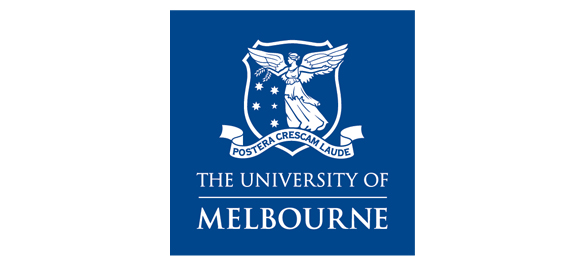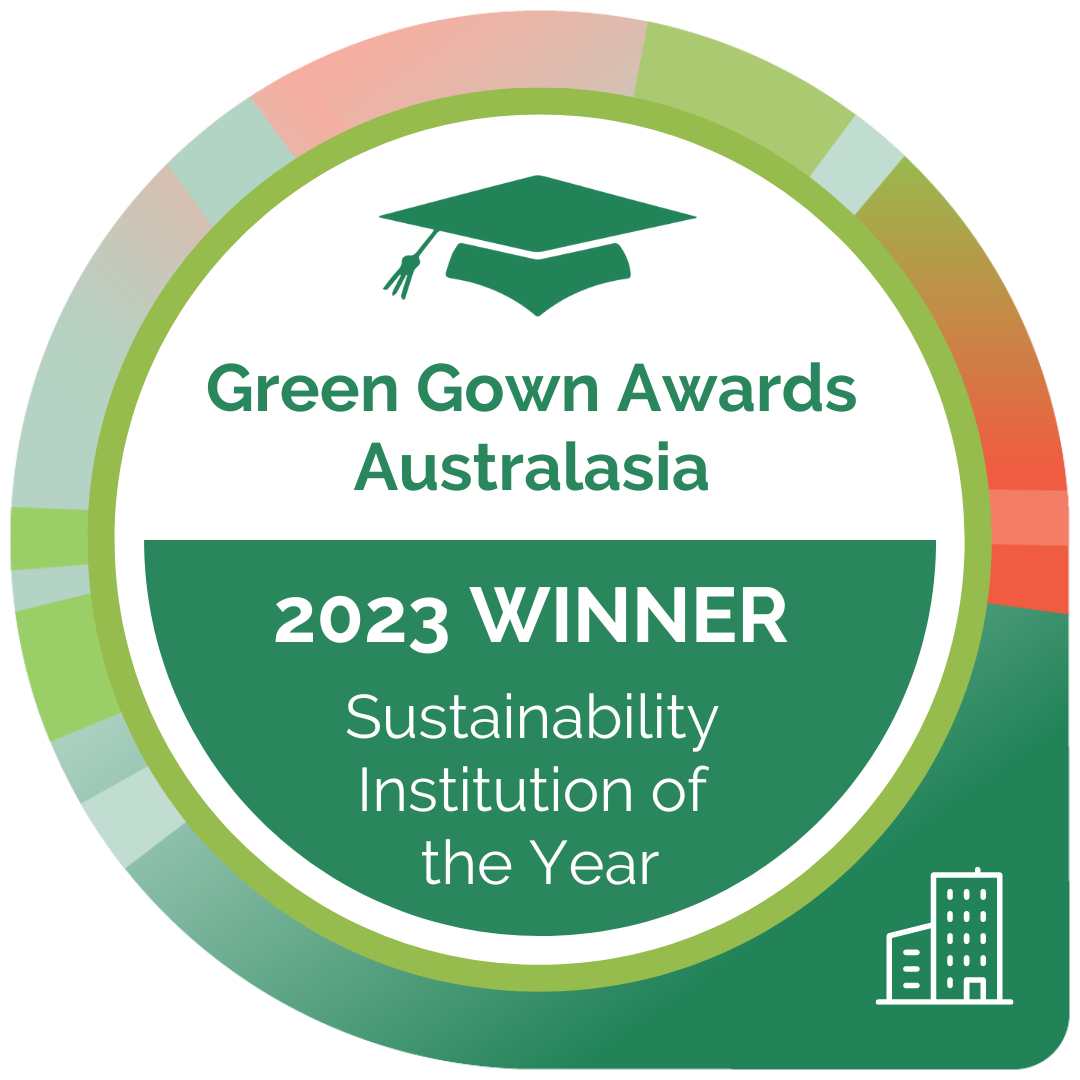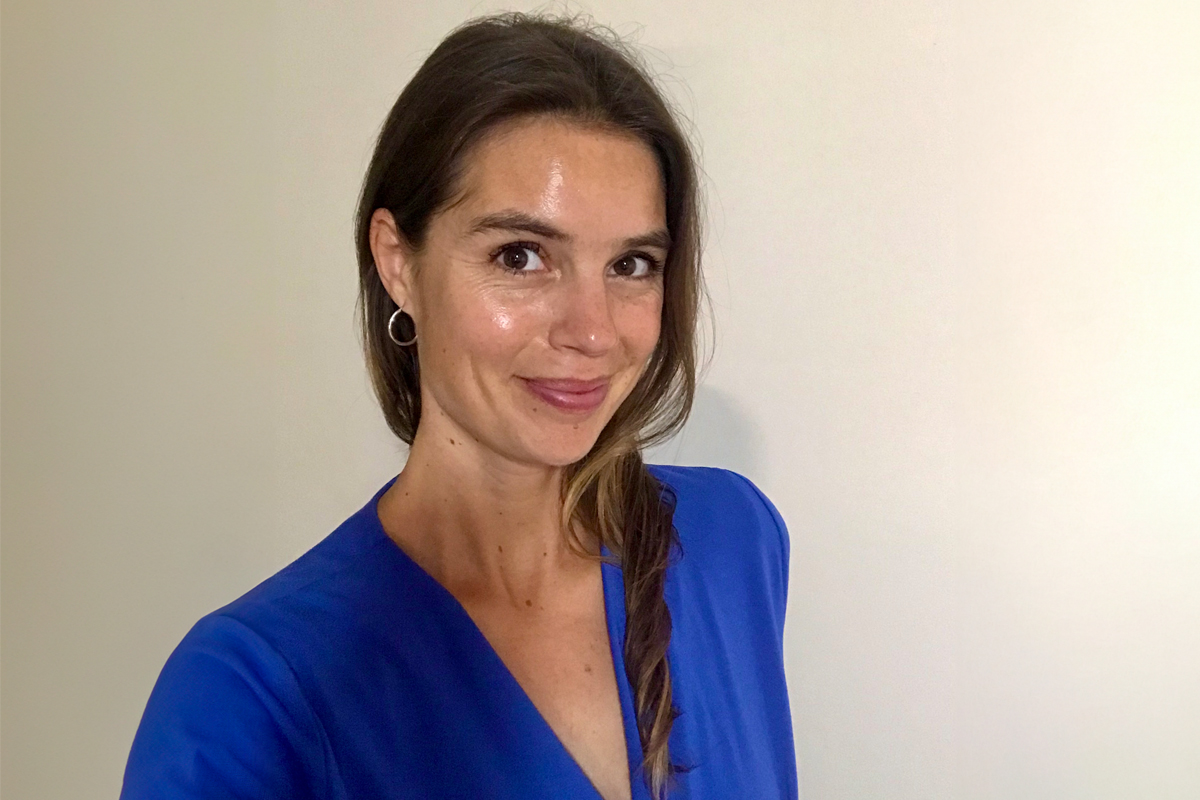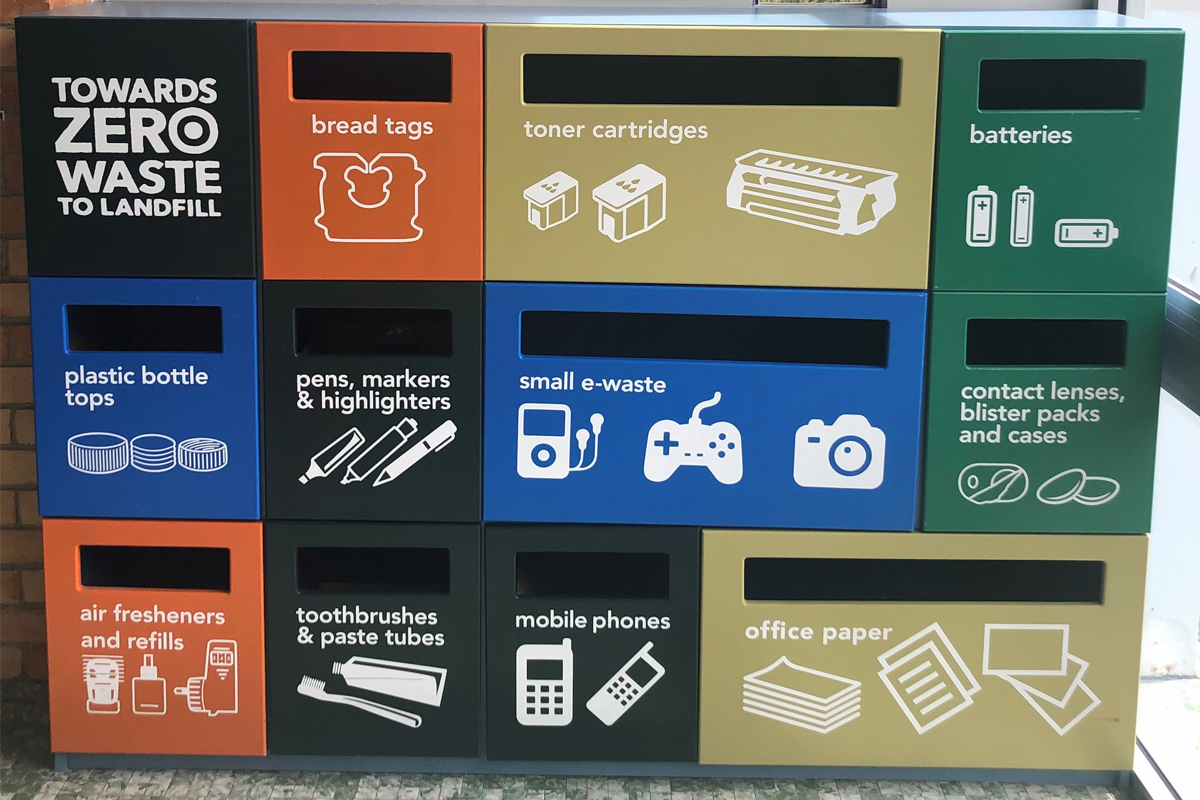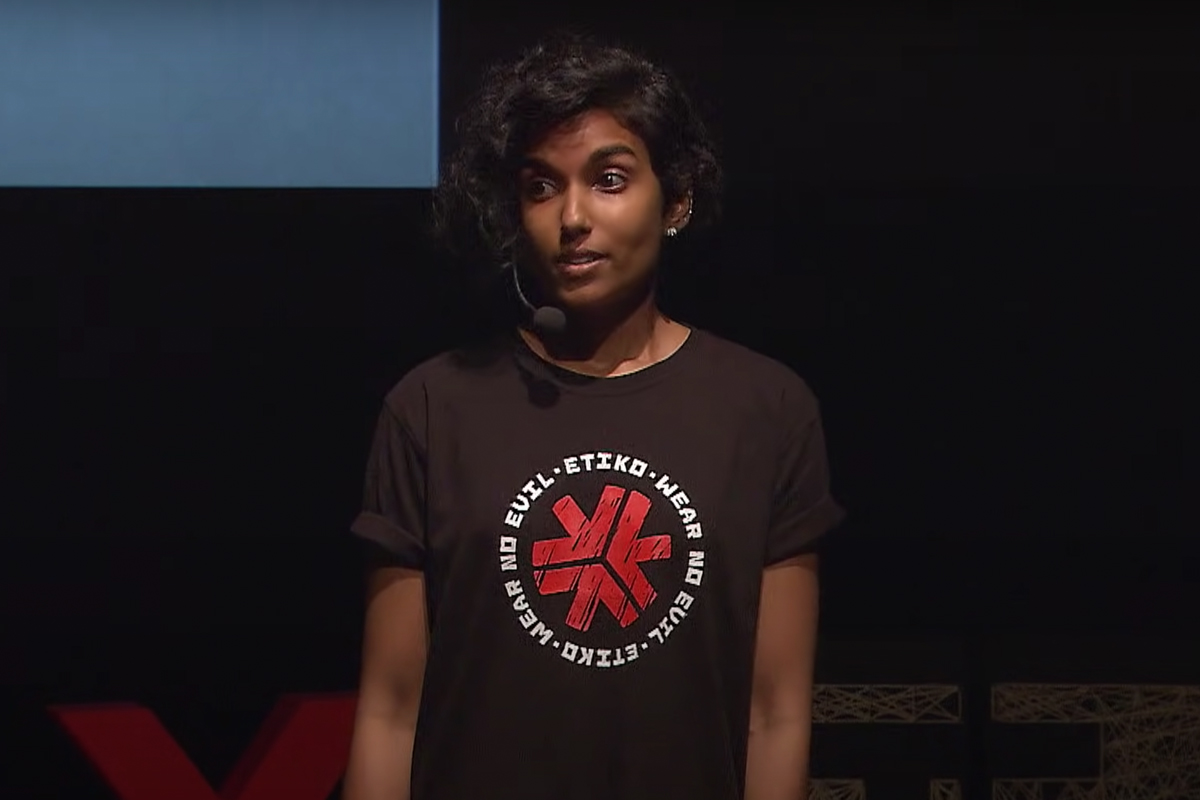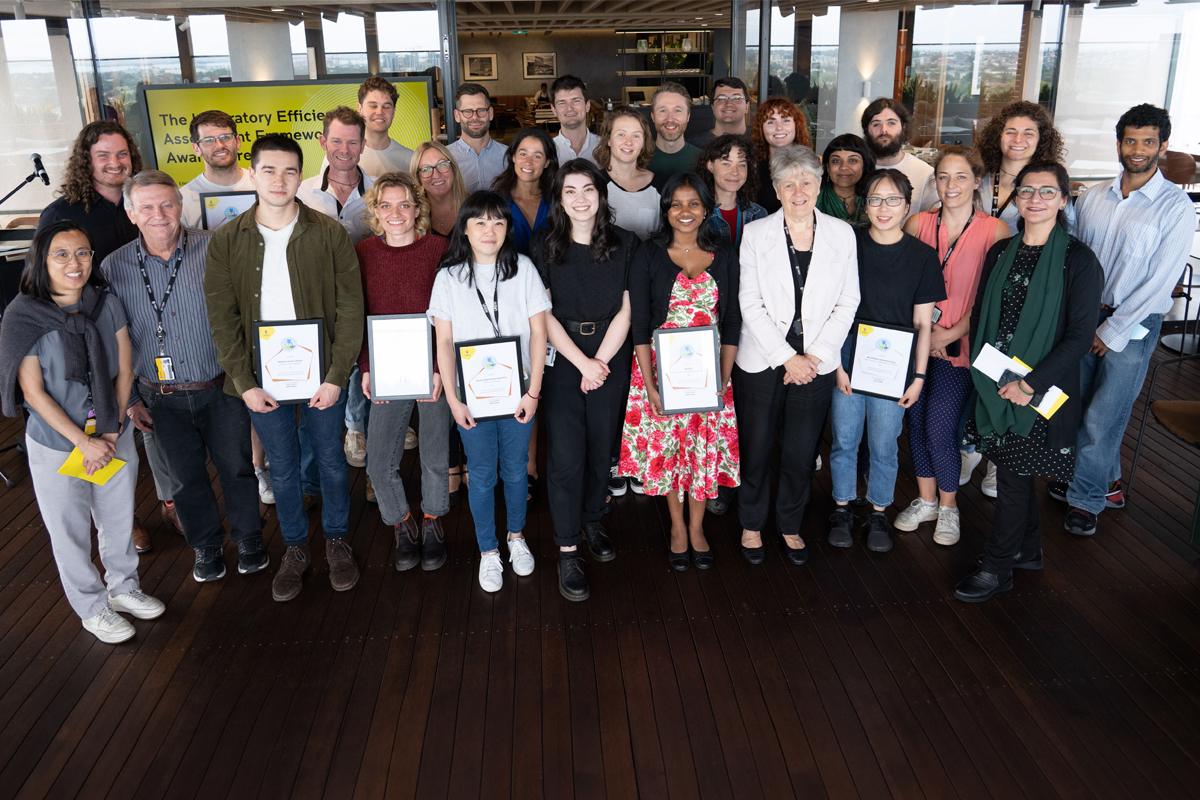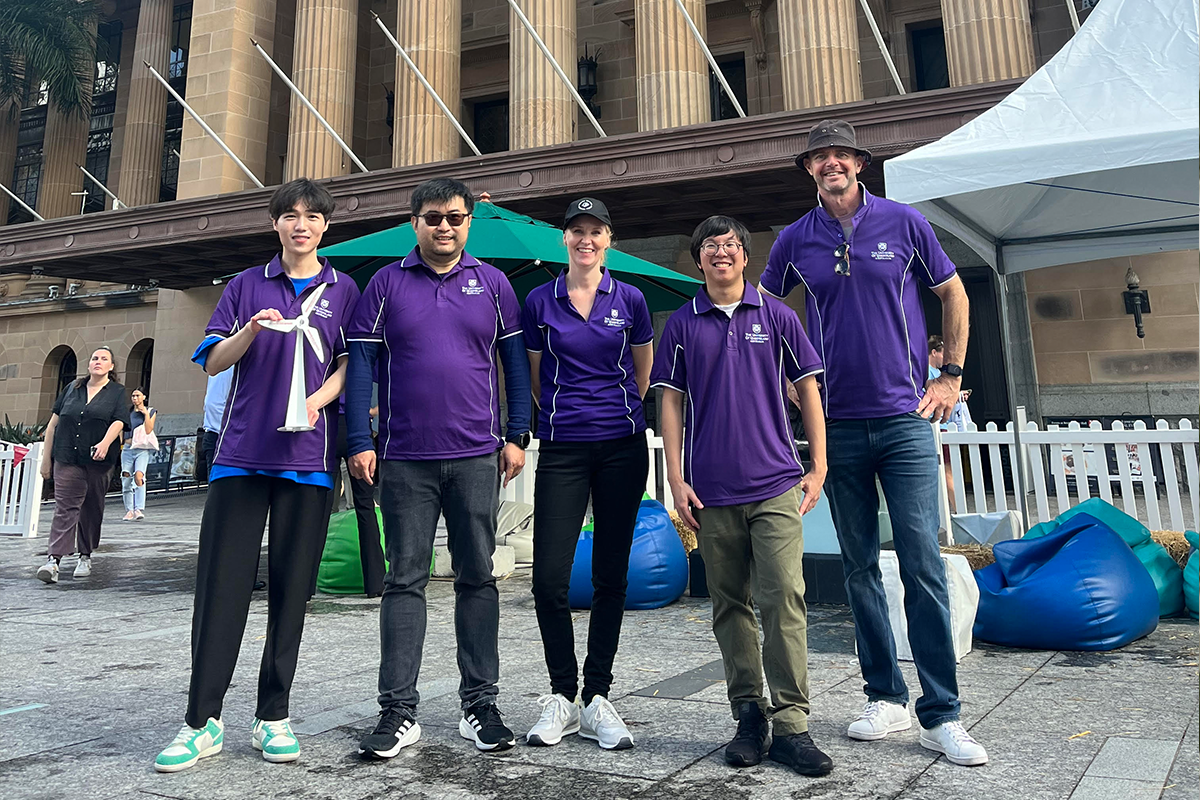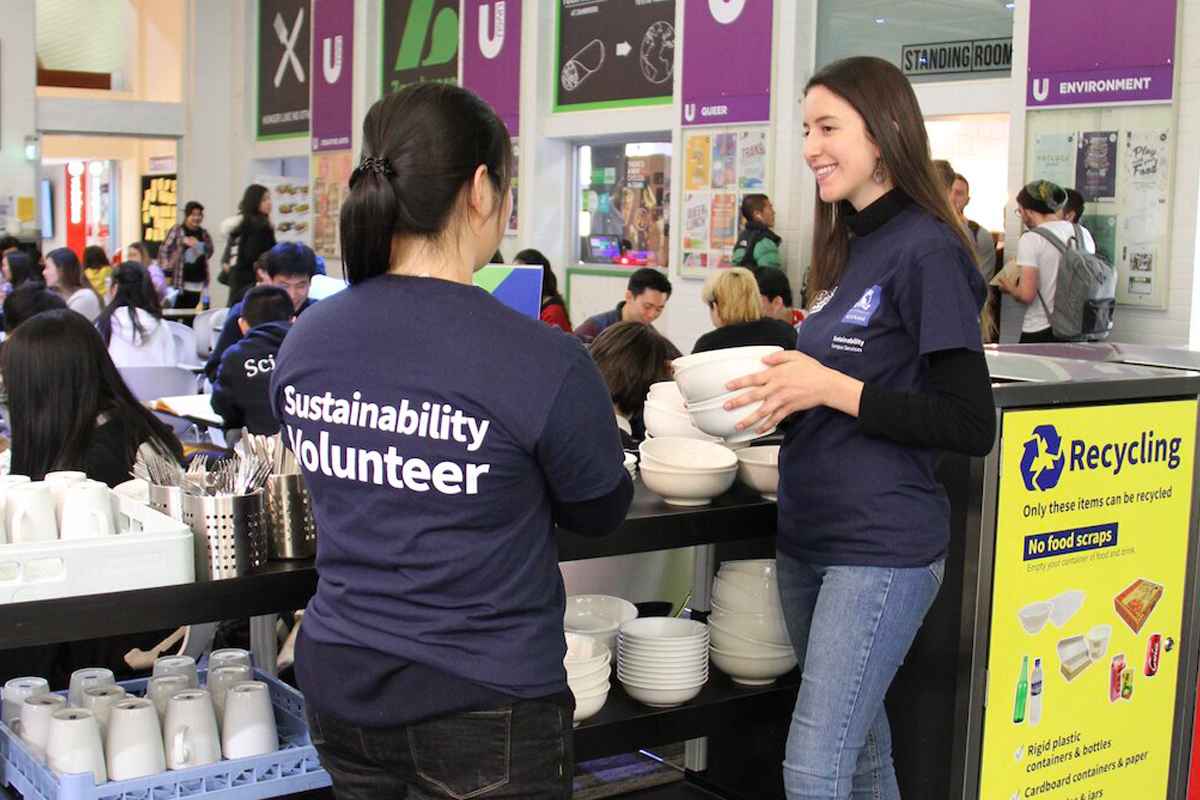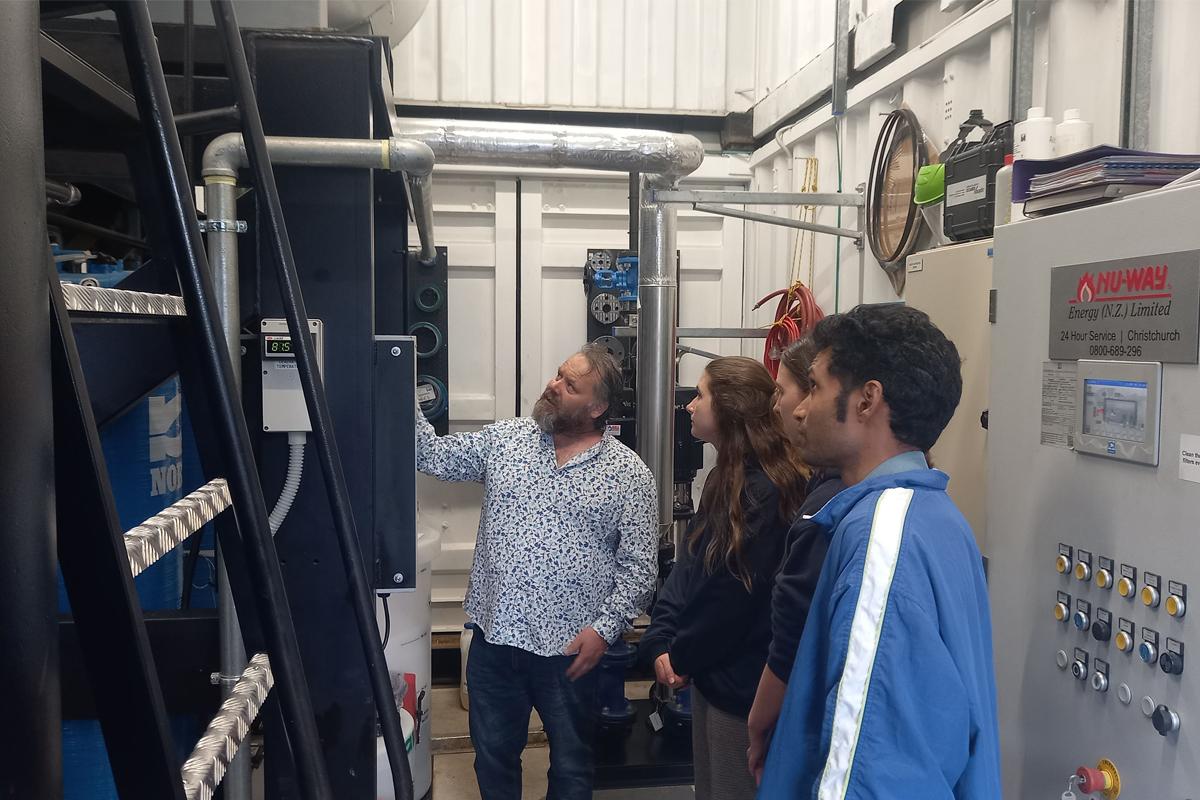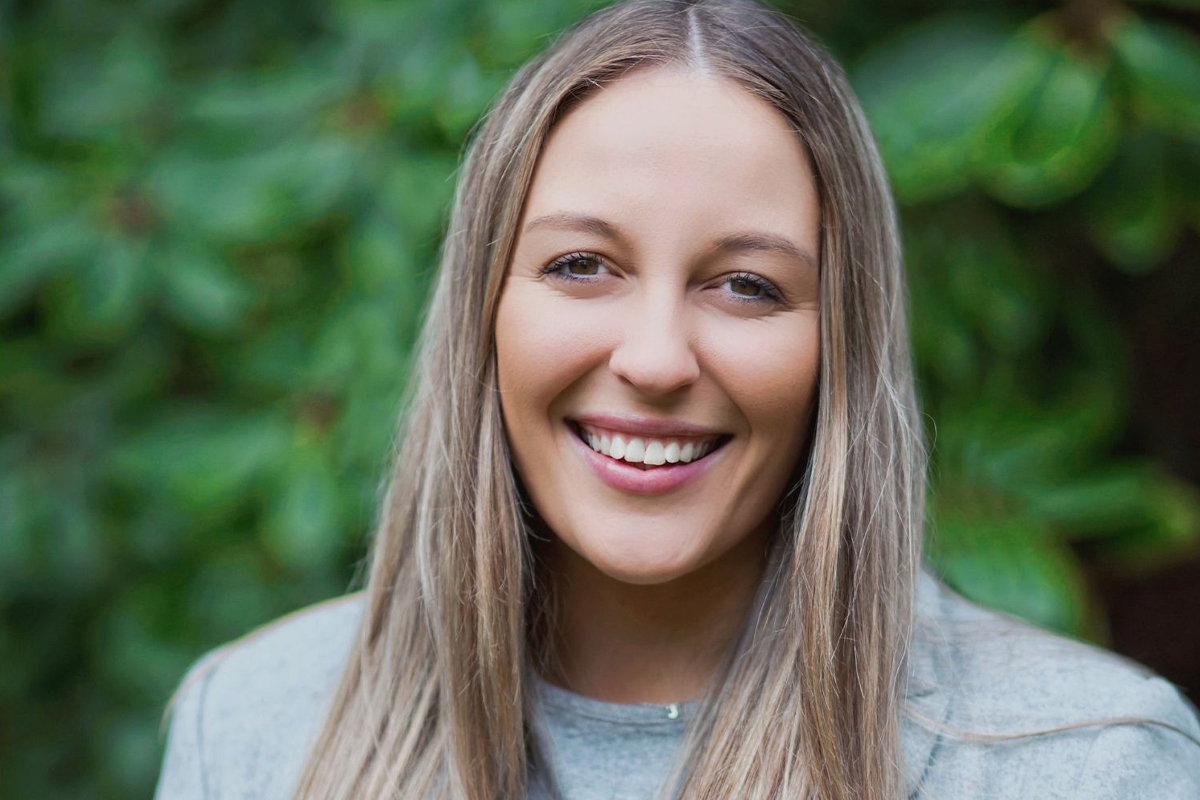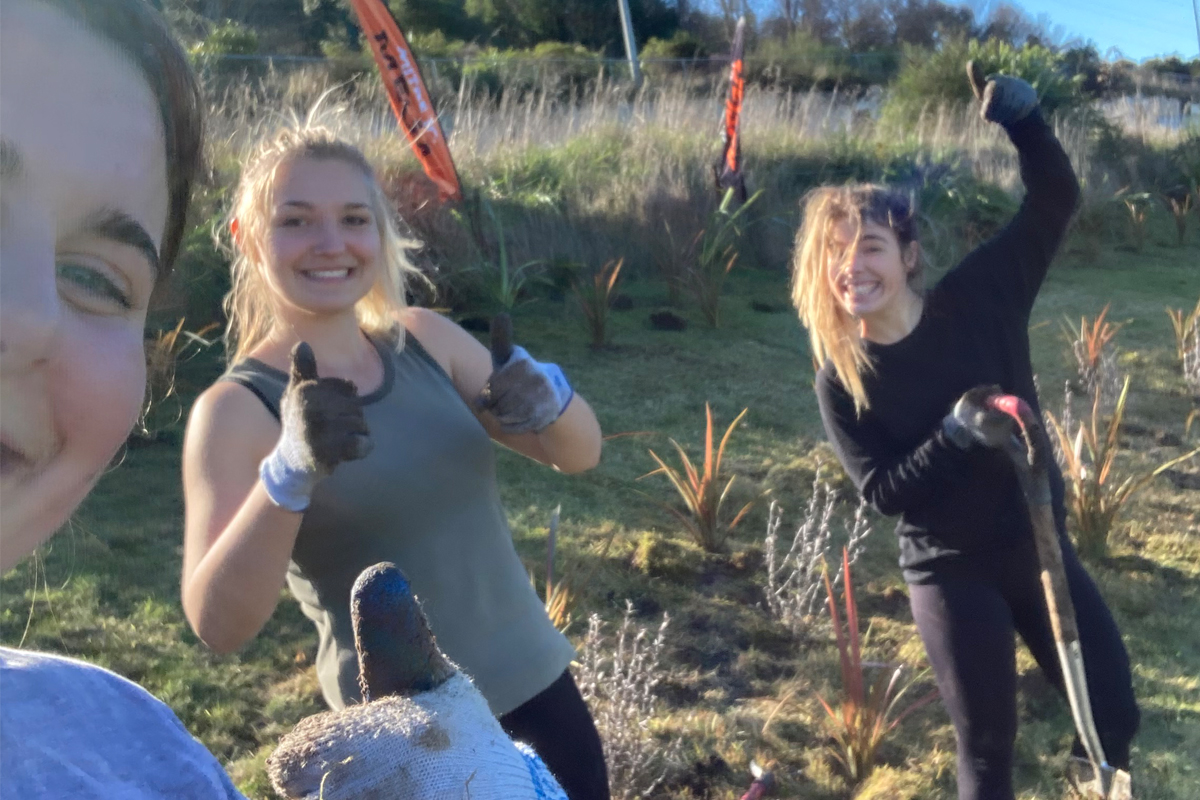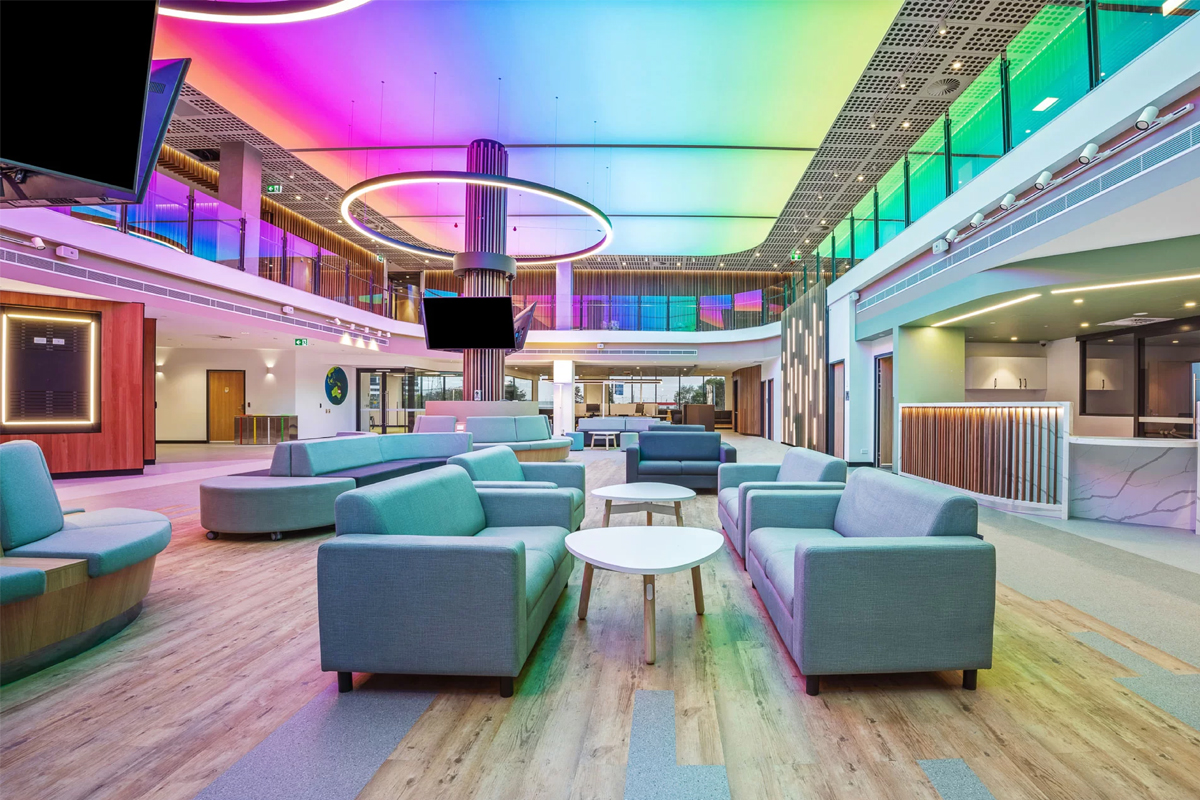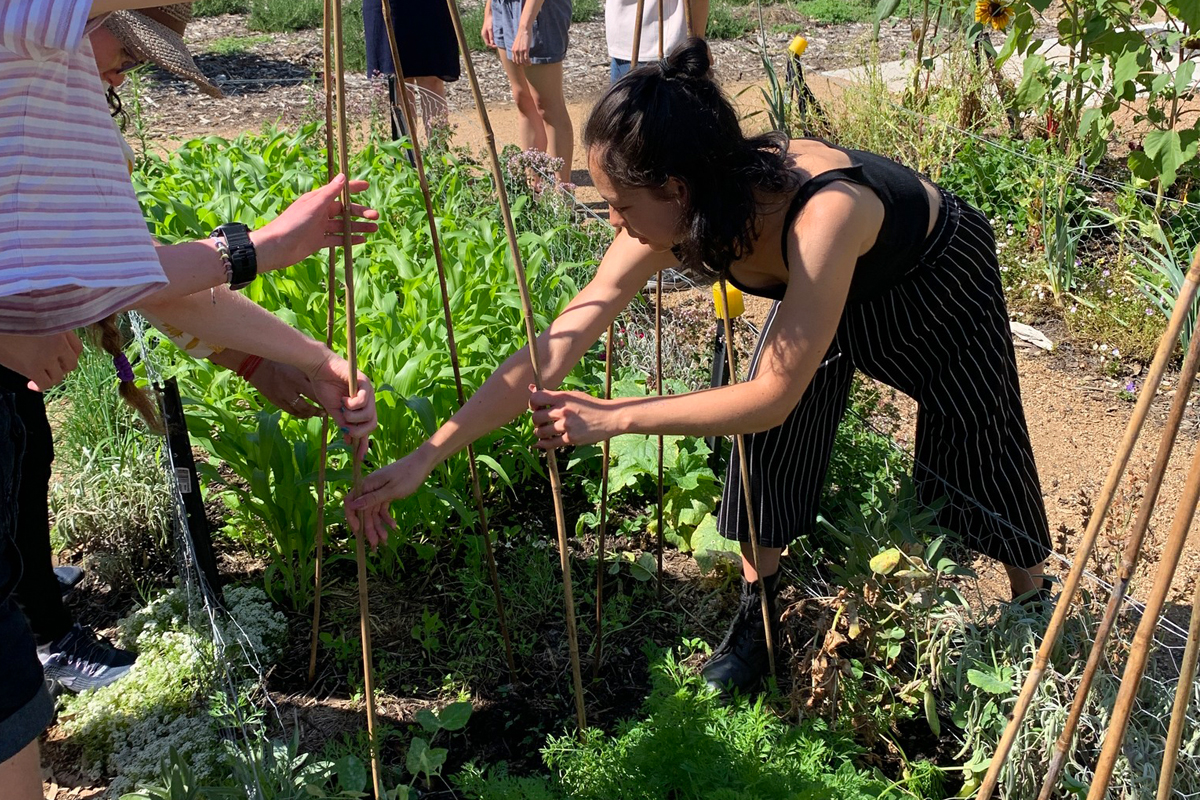Sustainability Institution of the Year/Winners category
The University of Melbourne has made a public commitment, through its Sustainability Framework to embed sustainability, holistically across the institution. Its framework, which includes a sustainability charter, sustainability plan 2030 and annual reports, since 2017. This holistic commitment is demonstrated University-wide by the implementation of multiple strategies, programs, and activities:
Leadership and Governance
The new Sustainability Plan 2030 was launched in May 2022, and is ambitious and strategic in equal measure, leveraging the University of Melbourne’s core attributes as an internationally recognised research, learning and teaching institution, and recognising the unique position we occupy in our local community. Further, our sustainability initiatives outlined in the 2030 plan align with the UN Sustainable Development Goals, addressing key areas such as climate action, responsible consumption and production, and quality education. We actively track and report our progress on these goals, ensuring transparency and alignment with global sustainability frameworks. In the 2024 QS world university rankings, UoM has jumped up to 14th (from 33rd last year), noting that sustainability has been included as a key criteria in these global rankings for the first time this year. Some key achievements: founding member of the Nature Positive Universities Alliance, net zero emissions from electricity, hosted 139 sustainability themed events, joined the Reach Alliance which brings together researchers and practitioners from across disciplines and around the world to accelerate the achievement of the UN SDGs. Issued the inaugural green bond and provided quality education through the work undergone by staff, students, researchers and alumni in promoting and advancing social and environmentally sustainable practices and attitudes, by incorporating sustainability principles in over 30 courses already influencing over 1000 students.
Facilities and Operations
The University has continuously and collectively worked to improve its campus and operations, supporting the student experience for many years. UoM has attempted to mobilise knowledge about sustainability in many fields to create a greater impact:
- In 2022, the University achieved zero net emissions from electricity for the second consecutive year, through two power purchase agreements with two Victorian windfarms. Since 2019 it has invested approx. $12 million of a $45million Smart Campus Energy Upgrades program budget, which includes LED lighting, chiller upgrades, on-site solar PV installations ( 11,000 panels, across 44 buildings, 4 campuses and 3MWh annual output), heating, ventilation, and air conditioning optimisation. Our focus is now on reducing scope 1 emissions generated from natural gas usage by developing an electrification program to replace gas infrastructure.
- The University also brought forward its climate leadership targets from ‘being certified carbon neutral by 2030 in the 2017-2020 plan to 2025 under the new plan, through climate active certification.
- In 2022, UoM became a founding member of the Nature Positive Universities Alliance. Through its extensive and unique Biodiversity Baseline data Collection project currently underway. Started in 2019 UoM is mapping all its green landscapes across 8 campuses to determine a baseline for 7 key metrics, including tree canopy cover, # of understory plants and fauna and fungi. This is to align with no net loss targets by 2025 and biodiversity positive by 2030. This is a huge undertaking, with the project approx. 80% complete. As a key metric output, we have 10,505m2 of tree canopy cover gain on our Parkville Campus from 2018-2022.
- Social and environmental sustainability clauses have been added to all new service and retail contracts in 2021/2022. This includes approx. 15 new retailers at the student precinct and 4 service contracts (waste, cleaning, grounds, and fleet). This has focused on the inclusion of social procurement targets surround modern slavery, ethical purchasing, diversity of workforce and collaboration with community and indigenous supply chain. This also includes operational changes that align with our sustainability plan targets – including a reduction in scope 3 emissions, circular economy & waste reductions measures, better data capture & reporting and compliance measures. We have also expanded indirect (Scope 3) emissions to include our entire procurement expenditure of over $1 billion.
- Since 2019 the University is also championing a circular economy approach to waste management, with the launch of the award winning choose to reuse program, implementing a full crockery service for Union house retailers and then moving it to the new student precinct from 2021. This included reuse for food trucks, launching Green Cafeen to deal with coffee cup waste, implementing a reuse vending machine, removing single use plastic disposable beverage bottles from retailers and vending machine from 2021, inducting a new waste provider and implementing a new measure for faculty-based waste. UoM ran a reuse master class with Sustainability Victoria to encourage other universities to implement a reuse program, with 3 Victorian universities now following suit.
- In 2022, work commenced to embed climate change risk into centralised risk management processes, e.g., an organisational risk register.
- Developed a formal Environmental Management System (EMS) that outlines strategies to address pollution and other environmental risks. The EMS is compliant with requirements of the international standard for Environmental Management – ISO 14001:2015.
- Developing guidelines and processes to support the development and curation of living labs, to use the campus as a testing ground, that make meaningful contributions to priority areas of the plan. Strategy should be in place by end 2023.
- In 2023, we will develop a carbon offsets procurement strategy based on current research and carbon offset standards.
Learning, Teaching and Research
Launching our flagship climate research institute, Melbourne Climate Futures, in March 2021, it has pioneered our learning, teaching and research element of sustainability. Addressing climate justice, MCF collaborates with the Melbourne Energy Institute (MEI) to develop pathways for achieving net-zero emissions in Australia. These institutes have been included as priority areas for philanthropic giving to further support the embedding of sustainability in our research programs; Melbourne Climate Futures (MCF), the Melbourne Energy Institute (MEI), the Indigenous Knowledges Institute (IKI), the Melbourne Social Equity Institute (MSEI), and the Melbourne Centre for Cities (MCC). Our academics contributed to sustainability research across a broad spectrum of knowledge domains. Our work included hosting events at the United Nations Climate Conference, COP27, contributing to the latest reports from the Intergovernmental Panel on Climate Change (IPCC) and testing new sustainability solutions on our campuses.
We have also successfully integrated sustainability principles into our curriculum across various disciplines and developed sustainability- focused curriculum content in 4 new subjects and courses including, ‘Today’s Science, Tomorrow’s World’, a Discovery subject for all first year Bachelor of Science students. Other sustainability and climate-focused subjects offered by the faculty include Introduction to Climate Change, Food for a Healthy Planet, and Sustainability: Hope for the Earth?.
Four faculties have established leadership roles to embed sustainability into their strategies and business planning.
- In 2021, Faculty of Science appointed an Associate Dean, Environment and Sustainability
- In 2022, Faculty of Medicine, Dentistry and Health Sciences appointed an Associate Dean, Healthcare Sustainability, and an Enterprise Professor in Sustainable Healthcare in the Department of Critical Care in Melbourne Medical School
- In early 2023, the role of Assistant Dean, Sustainability was established in the Faculty of Architecture, Building and Planning.
- In early 2023, the role of Associate Dean, Sustainability was established in Melbourne Graduate School of Education.
The University’s Sustainability in Curriculum Fellows, established in 2019, continued in their roles in the Faculties of Arts, Faculty of Engineering and Information Technology, Faculty of Business and Economics, and the Melbourne Graduate School of Education.
A few examples of success are, in 2022:
- Bachelor of Fine Arts Dance and Production students collaborated on Theatrum Botanicum, a dance work exploring botany and gardening. Over 12 weeks, students created a garden on the Southbank campus and performed the work for five nights in June. The project integrated plant life into the curriculum, fostering a connection between students and the natural world. Production students used organic materials for sets and costumes, promoting sustainable practices.
- The Faculty of Medicine, Dentistry, and Health Sciences initiated interprofessional workshops on sustainability and planetary health education.
- The Faculty of Engineering and Information Technology conducted a sustainability roundtable event with over 100 attendees.
- The Faculty of Science organised an Action on Environment and Sustainability Science Conference for graduate students.
- Melbourne Law School provided non-formal learning to professional staff on equipment reuse and ethical purchasing decisions.
- The University offers sustainability-focused courses, with an increase from 20 courses in 2019 to 30 courses in 2021. This expansion equips students with the knowledge and skills to address global challenges and enhances the reputation of the University.
Partnerships and Engagement
- The University formalised a partnership with the City of Melbourne in 2021, making progress in areas like climate, renewable energy, Indigenisation of Melbourne, and urban recovery.
- The Arnhem Land placement program provided teaching opportunities for students in remote schools, fostering community collaboration.
- The University became a partner in the Reach Alliance, working across disciplines and sectors to address the United Nations SDGs.
- In 2022, students, guided by Yorta Yorta Elders, built the Cummeragunja Bough Shed as part of an ongoing partnership with Bower Studio. This cultural structure is the first of many planned by the Cummeragunja Elders. The Cummeragunja on Country Learning Initiative, launched in 2022, is a collaboration between the Cummeragunja community, the Faculty of Architecture, Building and Planning, and the Academy of Sport, Health, and Education. The program is based on the Cummeragunja Reserve in New South Wales, providing co-designed on Country learning experiences.
- A winning concept from the City of Melbourne’s 2022 Fisherman’s Bend Innovation Challenge will be piloted as raingardens. Developed by a team of University of Melbourne students, the concept repurposes construction waste to filter stormwater using circular economy principles. The project received support and funding from the City of Melbourne, Development Victoria, and the Victorian Higher Education State Investment Fund. Testing of raingardens made from different materials started in 2022, with the first pilot installations planned for April 2023.

Environmental and social benefits
The social and environmental benefits across the institution are many and varied as well:
Key environmental benefits
- Achieved zero net emissions from electricity for the second consecutive year through the Universities two Windfarm PPAA – generating approx. 106 GWh of energy per year.
- Invested approx. $12 million in Smart Campus Energy Upgrades program since 2019, resulting in savings of approximately 3300 MWh per annum.
- Expanded carbon inventory to include scope 3 emissions for climate active certification including the entire procurement expenditure of over $1 billion.
- Implemented the Biodiversity Baseline Data Project in 2019 to quantify and protect biodiversity across all seven campuses using seven biodiversity metrics. Data collection for the project is 78% complete. For example, we have 62% of plantable area on campus at Burnley Campus for metric 1.
- Hosted 458 on-campus and online sustainability events with 16,869 attendees since 2019, including the ‘Ride2Uni’ event attended by 139 people held in 2022.
- Held 181 total staff and student volunteering sessions, engaged 553 staff and student volunteers who contributed 3,528 hours to on-campus sustainability projects since 2019.
- Registered 1365 teams and individuals in the Green Impact program, completing 5,971 sustainability actions across five campuses since 2019.
- Reached over 330,000 page views on the Sustainability website, with a 60% increase compared to previous years.
- Launched the Melbourne Plus program in 2022, with 29 students earning Sustainability Advocacy credentials.
- Developed a carbon offsets procurement strategy based on current research and carbon offset standards.
- By offering reusable plates, bowls, mugs and cutlery to customers, the choose to reuse plate program has also reduced the amount of waste to landfill collected in Union House and the new Student Precinct. A total of 582,122 items have been washed since 2019.
Key social benefits
- Conducted a biennial Sustainability Survey, every 2 years since 2012 until 2022, having participation from 7649 students and staff in total.
- Increased the number of sustainability-focused courses offered from 20 in 2019 to 30 in 2021, with a total of 1,000 enrolled students.
- Provided interprofessional workshops on sustainability and planetary health education in the Faculty of Medicine, Dentistry, and Health Sciences.
- Conducted a sustainability roundtable event in the Faculty of Engineering and Information Technology with over 100 attendees.
- Engaged students in non-formal learning on equipment reuse and ethical purchasing decisions in Melbourne Law School.
- Built partnerships with affiliated organisations, including Climate Reality, Melbourne Climate Futures, and The Wattle Fellowship.
- Formalised a partnership with the City of Melbourne, focusing on climate, renewable energy, Indigenisation, and urban recovery.
- Participated in the Reach Alliance, a global partnership for sustainability knowledge and action.
- Developing an indigenous partnerships strategy to be released in 2023.
- Convened a student health and wellbeing committee in 2022.
Leadership and engagement
The Sustainability Plan 2030 has shifted the view of success from what the University is doing to how the University’s actions are improving the vitality of communities, systems, cycles, and supply chains that it is part of. These can be demonstrated by the activities below:
- The establishment of the Sustainability Advisory Group (SAG) to govern the implementation of the plan. This commitment to sustainability is further supported by the integration of sustainability into the university’s strategic planning and the formation of cross-disciplinary collaboration and accountability structures with the university seeking to embed sustainability principles throughout the university’s activities.
- The sustainability initiatives outlined align with the United Nations Sustainable Development Goals (SDGs), reflecting a commitment to addressing global challenges such as climate action, responsible consumption and production, and quality education. This alignment ensures that the university’s efforts contribute to broader global sustainability objectives.
- The operational outputs and efforts contribute to reducing the university’s environmental footprint and promoting sustainable practices on campus.
- Sustainability principles are integrated into the university’s curriculum across various disciplines, offering students the opportunity to develop knowledge and skills to address sustainability challenges. The university’s research institutes, and faculty members actively contribute to sustainability research, collaborate with external partners, and participate in global sustainability events, positioning the university as a leader in sustainability-focused education and research.
- The university actively engages in partnerships with external organisations, such as the City of Melbourne, research institutes, and community groups. These collaborations enable knowledge sharing, leverage expertise, and mobilize sustainability knowledge for action. The university’s involvement in various sustainability alliances and initiatives further strengthens its position as a collaborative and engaged sustainability actor.
- The Sustainability Team also has a dedicated communications officer and a dedicated engagement officer. Therefore, we have dedicated sustainability comms that are able to go out on multiple channels including social media and reach a wide audience. For example, they both organised for us to have a presence in 14 events during orientation and received nearly 500 new followers on Instagram in a week.
- Our Green Impact program goes above and beyond the usual Green Impact rules as we created an Individuals toolkit which captures all staff, students, and the whole University community. It is not only designed to be fully inclusive but also engaging the community to uptake positive sustainability skills at a team department level and an individual level. Since launching in 2021, the Individuals toolkit alone has seen 185 registrants completing nearly 1000 greening actions.
Significance to the sector
The UoM takes pride in its leadership role within the sector, setting an example as an institution that fully embraces and supports sustainability. It has been at the forefront of several ground-breaking initiatives, demonstrating its commitment to driving positive change. The university has achieved several Australian firsts in sustainability as outlined below:
- It was the first institution in Australasia to implement the Green Impact (GI) program in 2017 and was brought over from the UK. This pioneering approach has had a significant impact on campus sustainability and serves as a model for other institutions.
- The University of Melbourne also stands out as the first Australian university to establish a sustainability charter and a comprehensive and world-leading sustainability plan in 2016. These initiatives provide a clear roadmap for the institution’s sustainability goals and showcase its dedication to integrating sustainable practices into all aspects of its operations and strategy.
- Additionally, the university has spearheaded the Choose to Reuse program since 2019, making it the Australian leader in promoting reusable alternatives on a significant scale, rather than going down the compostable route. By implementing this initiative, the university has actively contributed to reducing single-use plastic waste and creating a more sustainable campus environment.
- In the realm of biodiversity conservation, the University of Melbourne has taken the lead by undertaking an extensive baseline data collection project, both in its size and scale. This endeavour, which is unprecedented in scale and size, involves mapping green landscapes across eight campuses and tracking key metrics to assess biodiversity. The university’s commitment to preserving and enhancing biodiversity sets a new benchmark for sustainability initiatives in the country.
- Further, UoM was part of the first Power Purchase consortium in Victoria within the sector (MREP 1).
The University of Melbourne also collaborates with sector partners to deliver core teaching, learning, and research that fosters a sustainability-literate community and produces graduates equipped to address global challenges. By working in collaboration with other institutions and organisations, the university ensures that sustainability education and research extend beyond its own campus, making a collective impact on creating a sustainable future. Through its leadership and collaborative efforts, the University of Melbourne has established itself as a trailblazer in sustainability within the sector. Its commitment to sustainable practices, innovative initiatives, and partnerships serves as an inspiration to other institutions, paving the way for a more sustainable future in education and beyond and create sustainability literate community and graduates.
Wider societal impact
- The sustainability initiatives, such as reducing carbon emissions, improving waste management, and promoting renewable energy, contribute to mitigating climate change, conserving natural resources, and protecting biodiversity. These efforts help create a more sustainable and resilient environment for present and future generations.
- By embedding sustainability principles in the curriculum and engaging students and staff in sustainability-focused activities, these projects foster awareness and education on sustainability issues. This leads to a more environmentally conscious and responsible university community and ultimately society. The inclusion of the Indigenous Knowledges Institute and the Melbourne Social Equity Institute highlights a commitment to social justice and addressing societal inequalities and collaboration with the flagship climate research institute, Melbourne Climate Futures, and collaborations with other research institutes demonstrate a commitment to advancing knowledge in sustainability and climate-related issues.
- The alignment of sustainability initiatives with the United Nations Sustainable Development Goals (SDGs) and the University’s involvement in global initiatives, such as the Nature Positive Universities Alliance and the Reach Alliance, showcase the potential for international impact. These projects contribute to global efforts in achieving sustainable development and serve as examples for other institutions and sectors to replicate and adapt sustainable practices.
Learner/Graduate employer impact
The University of Melbourne aims to inspire all graduates to think ‘sustainably’. It aims to equip them with the understanding, awareness and life skills that will support them in their future careers. By creating a community of sustainability literate graduates, we enhance the skills that UoM graduates will take out into the workforce and lives. As they become the new leaders of tomorrow, sustainability will be one of their graduate attributes, making it ‘business as usual’ within their thinking and doing. The UoM is a workplace that is committed to continuously educating its community on sustainable practices, empowering them to be part of a network of change-makers. Directly attributable through practice experience as well, through the internship’s programs and Melbourne plus.
Some testimonials from students that were part of our internship program were:
“Coming into the internship at the beginning of the Master of Environment helped me clarify my future career path and outlined my strengths and weaknesses as a professional. I had the opportunity to work on multiple projects within the team and with other departments, which gave me the chance to step outside my comfort zone. I gained so much knowledge and experience in the short time I spent there and created friendships that extended outside of the internship.”
Hariz Ahmad, Master of Environment – Waste Minimisation Intern, Summer Semester 2021
“The internship allowed me to work collaboratively with people of different expertise, which has helped me expand my knowledge beyond design and into plants and ecosystems. I gained valuable practical skills in surveying, mapping, data analysis, and report writing and am so grateful that the friendly team was always happy to provide me with support and guidance, making me more confident and prepared for entering the workplace.”
Cherry Lai, Master of Landscape Architecture – Biodiversity Intern, Summer Semester 2021

Top 3 learnings
Past winners
Benefitting Society/Winners
Benefitting Society/Winners
Diversity, Equity & Inclusion in Sustainability/Winners
Diversity, Equity & Inclusion in Sustainability/Winners
Climate Action/Winners
Climate Action/Winners
Sustainability Institution of the Year/Winners
Sustainability Institution of the Year/Winners
Creating Impact/Winners
Creating Impact/Winners
Creating Impact/Winners
Creating Impact/Winners
Top 3 learnings
Sustainability Institution of the Year/Winners category
The University of Melbourne has made a public commitment, through its Sustainability Framework to embed sustainability, holistically across the institution. Its framework, which includes a sustainability charter, sustainability plan 2030 and annual reports, since 2017. This holistic commitment is demonstrated University-wide by the implementation of multiple strategies, programs, and activities:
Leadership and Governance
The new Sustainability Plan 2030 was launched in May 2022, and is ambitious and strategic in equal measure, leveraging the University of Melbourne’s core attributes as an internationally recognised research, learning and teaching institution, and recognising the unique position we occupy in our local community. Further, our sustainability initiatives outlined in the 2030 plan align with the UN Sustainable Development Goals, addressing key areas such as climate action, responsible consumption and production, and quality education. We actively track and report our progress on these goals, ensuring transparency and alignment with global sustainability frameworks. In the 2024 QS world university rankings, UoM has jumped up to 14th (from 33rd last year), noting that sustainability has been included as a key criteria in these global rankings for the first time this year. Some key achievements: founding member of the Nature Positive Universities Alliance, net zero emissions from electricity, hosted 139 sustainability themed events, joined the Reach Alliance which brings together researchers and practitioners from across disciplines and around the world to accelerate the achievement of the UN SDGs. Issued the inaugural green bond and provided quality education through the work undergone by staff, students, researchers and alumni in promoting and advancing social and environmentally sustainable practices and attitudes, by incorporating sustainability principles in over 30 courses already influencing over 1000 students.
Facilities and Operations
The University has continuously and collectively worked to improve its campus and operations, supporting the student experience for many years. UoM has attempted to mobilise knowledge about sustainability in many fields to create a greater impact:
- In 2022, the University achieved zero net emissions from electricity for the second consecutive year, through two power purchase agreements with two Victorian windfarms. Since 2019 it has invested approx. $12 million of a $45million Smart Campus Energy Upgrades program budget, which includes LED lighting, chiller upgrades, on-site solar PV installations ( 11,000 panels, across 44 buildings, 4 campuses and 3MWh annual output), heating, ventilation, and air conditioning optimisation. Our focus is now on reducing scope 1 emissions generated from natural gas usage by developing an electrification program to replace gas infrastructure.
- The University also brought forward its climate leadership targets from ‘being certified carbon neutral by 2030 in the 2017-2020 plan to 2025 under the new plan, through climate active certification.
- In 2022, UoM became a founding member of the Nature Positive Universities Alliance. Through its extensive and unique Biodiversity Baseline data Collection project currently underway. Started in 2019 UoM is mapping all its green landscapes across 8 campuses to determine a baseline for 7 key metrics, including tree canopy cover, # of understory plants and fauna and fungi. This is to align with no net loss targets by 2025 and biodiversity positive by 2030. This is a huge undertaking, with the project approx. 80% complete. As a key metric output, we have 10,505m2 of tree canopy cover gain on our Parkville Campus from 2018-2022.
- Social and environmental sustainability clauses have been added to all new service and retail contracts in 2021/2022. This includes approx. 15 new retailers at the student precinct and 4 service contracts (waste, cleaning, grounds, and fleet). This has focused on the inclusion of social procurement targets surround modern slavery, ethical purchasing, diversity of workforce and collaboration with community and indigenous supply chain. This also includes operational changes that align with our sustainability plan targets – including a reduction in scope 3 emissions, circular economy & waste reductions measures, better data capture & reporting and compliance measures. We have also expanded indirect (Scope 3) emissions to include our entire procurement expenditure of over $1 billion.
- Since 2019 the University is also championing a circular economy approach to waste management, with the launch of the award winning choose to reuse program, implementing a full crockery service for Union house retailers and then moving it to the new student precinct from 2021. This included reuse for food trucks, launching Green Cafeen to deal with coffee cup waste, implementing a reuse vending machine, removing single use plastic disposable beverage bottles from retailers and vending machine from 2021, inducting a new waste provider and implementing a new measure for faculty-based waste. UoM ran a reuse master class with Sustainability Victoria to encourage other universities to implement a reuse program, with 3 Victorian universities now following suit.
- In 2022, work commenced to embed climate change risk into centralised risk management processes, e.g., an organisational risk register.
- Developed a formal Environmental Management System (EMS) that outlines strategies to address pollution and other environmental risks. The EMS is compliant with requirements of the international standard for Environmental Management – ISO 14001:2015.
- Developing guidelines and processes to support the development and curation of living labs, to use the campus as a testing ground, that make meaningful contributions to priority areas of the plan. Strategy should be in place by end 2023.
- In 2023, we will develop a carbon offsets procurement strategy based on current research and carbon offset standards.
Learning, Teaching and Research
Launching our flagship climate research institute, Melbourne Climate Futures, in March 2021, it has pioneered our learning, teaching and research element of sustainability. Addressing climate justice, MCF collaborates with the Melbourne Energy Institute (MEI) to develop pathways for achieving net-zero emissions in Australia. These institutes have been included as priority areas for philanthropic giving to further support the embedding of sustainability in our research programs; Melbourne Climate Futures (MCF), the Melbourne Energy Institute (MEI), the Indigenous Knowledges Institute (IKI), the Melbourne Social Equity Institute (MSEI), and the Melbourne Centre for Cities (MCC). Our academics contributed to sustainability research across a broad spectrum of knowledge domains. Our work included hosting events at the United Nations Climate Conference, COP27, contributing to the latest reports from the Intergovernmental Panel on Climate Change (IPCC) and testing new sustainability solutions on our campuses.
We have also successfully integrated sustainability principles into our curriculum across various disciplines and developed sustainability- focused curriculum content in 4 new subjects and courses including, ‘Today’s Science, Tomorrow’s World’, a Discovery subject for all first year Bachelor of Science students. Other sustainability and climate-focused subjects offered by the faculty include Introduction to Climate Change, Food for a Healthy Planet, and Sustainability: Hope for the Earth?.
Four faculties have established leadership roles to embed sustainability into their strategies and business planning.
- In 2021, Faculty of Science appointed an Associate Dean, Environment and Sustainability
- In 2022, Faculty of Medicine, Dentistry and Health Sciences appointed an Associate Dean, Healthcare Sustainability, and an Enterprise Professor in Sustainable Healthcare in the Department of Critical Care in Melbourne Medical School
- In early 2023, the role of Assistant Dean, Sustainability was established in the Faculty of Architecture, Building and Planning.
- In early 2023, the role of Associate Dean, Sustainability was established in Melbourne Graduate School of Education.
The University’s Sustainability in Curriculum Fellows, established in 2019, continued in their roles in the Faculties of Arts, Faculty of Engineering and Information Technology, Faculty of Business and Economics, and the Melbourne Graduate School of Education.
A few examples of success are, in 2022:
- Bachelor of Fine Arts Dance and Production students collaborated on Theatrum Botanicum, a dance work exploring botany and gardening. Over 12 weeks, students created a garden on the Southbank campus and performed the work for five nights in June. The project integrated plant life into the curriculum, fostering a connection between students and the natural world. Production students used organic materials for sets and costumes, promoting sustainable practices.
- The Faculty of Medicine, Dentistry, and Health Sciences initiated interprofessional workshops on sustainability and planetary health education.
- The Faculty of Engineering and Information Technology conducted a sustainability roundtable event with over 100 attendees.
- The Faculty of Science organised an Action on Environment and Sustainability Science Conference for graduate students.
- Melbourne Law School provided non-formal learning to professional staff on equipment reuse and ethical purchasing decisions.
- The University offers sustainability-focused courses, with an increase from 20 courses in 2019 to 30 courses in 2021. This expansion equips students with the knowledge and skills to address global challenges and enhances the reputation of the University.
Partnerships and Engagement
- The University formalised a partnership with the City of Melbourne in 2021, making progress in areas like climate, renewable energy, Indigenisation of Melbourne, and urban recovery.
- The Arnhem Land placement program provided teaching opportunities for students in remote schools, fostering community collaboration.
- The University became a partner in the Reach Alliance, working across disciplines and sectors to address the United Nations SDGs.
- In 2022, students, guided by Yorta Yorta Elders, built the Cummeragunja Bough Shed as part of an ongoing partnership with Bower Studio. This cultural structure is the first of many planned by the Cummeragunja Elders. The Cummeragunja on Country Learning Initiative, launched in 2022, is a collaboration between the Cummeragunja community, the Faculty of Architecture, Building and Planning, and the Academy of Sport, Health, and Education. The program is based on the Cummeragunja Reserve in New South Wales, providing co-designed on Country learning experiences.
- A winning concept from the City of Melbourne’s 2022 Fisherman’s Bend Innovation Challenge will be piloted as raingardens. Developed by a team of University of Melbourne students, the concept repurposes construction waste to filter stormwater using circular economy principles. The project received support and funding from the City of Melbourne, Development Victoria, and the Victorian Higher Education State Investment Fund. Testing of raingardens made from different materials started in 2022, with the first pilot installations planned for April 2023.

Environmental and social benefits
The social and environmental benefits across the institution are many and varied as well:
Key environmental benefits
- Achieved zero net emissions from electricity for the second consecutive year through the Universities two Windfarm PPAA – generating approx. 106 GWh of energy per year.
- Invested approx. $12 million in Smart Campus Energy Upgrades program since 2019, resulting in savings of approximately 3300 MWh per annum.
- Expanded carbon inventory to include scope 3 emissions for climate active certification including the entire procurement expenditure of over $1 billion.
- Implemented the Biodiversity Baseline Data Project in 2019 to quantify and protect biodiversity across all seven campuses using seven biodiversity metrics. Data collection for the project is 78% complete. For example, we have 62% of plantable area on campus at Burnley Campus for metric 1.
- Hosted 458 on-campus and online sustainability events with 16,869 attendees since 2019, including the ‘Ride2Uni’ event attended by 139 people held in 2022.
- Held 181 total staff and student volunteering sessions, engaged 553 staff and student volunteers who contributed 3,528 hours to on-campus sustainability projects since 2019.
- Registered 1365 teams and individuals in the Green Impact program, completing 5,971 sustainability actions across five campuses since 2019.
- Reached over 330,000 page views on the Sustainability website, with a 60% increase compared to previous years.
- Launched the Melbourne Plus program in 2022, with 29 students earning Sustainability Advocacy credentials.
- Developed a carbon offsets procurement strategy based on current research and carbon offset standards.
- By offering reusable plates, bowls, mugs and cutlery to customers, the choose to reuse plate program has also reduced the amount of waste to landfill collected in Union House and the new Student Precinct. A total of 582,122 items have been washed since 2019.
Key social benefits
- Conducted a biennial Sustainability Survey, every 2 years since 2012 until 2022, having participation from 7649 students and staff in total.
- Increased the number of sustainability-focused courses offered from 20 in 2019 to 30 in 2021, with a total of 1,000 enrolled students.
- Provided interprofessional workshops on sustainability and planetary health education in the Faculty of Medicine, Dentistry, and Health Sciences.
- Conducted a sustainability roundtable event in the Faculty of Engineering and Information Technology with over 100 attendees.
- Engaged students in non-formal learning on equipment reuse and ethical purchasing decisions in Melbourne Law School.
- Built partnerships with affiliated organisations, including Climate Reality, Melbourne Climate Futures, and The Wattle Fellowship.
- Formalised a partnership with the City of Melbourne, focusing on climate, renewable energy, Indigenisation, and urban recovery.
- Participated in the Reach Alliance, a global partnership for sustainability knowledge and action.
- Developing an indigenous partnerships strategy to be released in 2023.
- Convened a student health and wellbeing committee in 2022.
Leadership and engagement
The Sustainability Plan 2030 has shifted the view of success from what the University is doing to how the University’s actions are improving the vitality of communities, systems, cycles, and supply chains that it is part of. These can be demonstrated by the activities below:
- The establishment of the Sustainability Advisory Group (SAG) to govern the implementation of the plan. This commitment to sustainability is further supported by the integration of sustainability into the university’s strategic planning and the formation of cross-disciplinary collaboration and accountability structures with the university seeking to embed sustainability principles throughout the university’s activities.
- The sustainability initiatives outlined align with the United Nations Sustainable Development Goals (SDGs), reflecting a commitment to addressing global challenges such as climate action, responsible consumption and production, and quality education. This alignment ensures that the university’s efforts contribute to broader global sustainability objectives.
- The operational outputs and efforts contribute to reducing the university’s environmental footprint and promoting sustainable practices on campus.
- Sustainability principles are integrated into the university’s curriculum across various disciplines, offering students the opportunity to develop knowledge and skills to address sustainability challenges. The university’s research institutes, and faculty members actively contribute to sustainability research, collaborate with external partners, and participate in global sustainability events, positioning the university as a leader in sustainability-focused education and research.
- The university actively engages in partnerships with external organisations, such as the City of Melbourne, research institutes, and community groups. These collaborations enable knowledge sharing, leverage expertise, and mobilize sustainability knowledge for action. The university’s involvement in various sustainability alliances and initiatives further strengthens its position as a collaborative and engaged sustainability actor.
- The Sustainability Team also has a dedicated communications officer and a dedicated engagement officer. Therefore, we have dedicated sustainability comms that are able to go out on multiple channels including social media and reach a wide audience. For example, they both organised for us to have a presence in 14 events during orientation and received nearly 500 new followers on Instagram in a week.
- Our Green Impact program goes above and beyond the usual Green Impact rules as we created an Individuals toolkit which captures all staff, students, and the whole University community. It is not only designed to be fully inclusive but also engaging the community to uptake positive sustainability skills at a team department level and an individual level. Since launching in 2021, the Individuals toolkit alone has seen 185 registrants completing nearly 1000 greening actions.
Significance to the sector
The UoM takes pride in its leadership role within the sector, setting an example as an institution that fully embraces and supports sustainability. It has been at the forefront of several ground-breaking initiatives, demonstrating its commitment to driving positive change. The university has achieved several Australian firsts in sustainability as outlined below:
- It was the first institution in Australasia to implement the Green Impact (GI) program in 2017 and was brought over from the UK. This pioneering approach has had a significant impact on campus sustainability and serves as a model for other institutions.
- The University of Melbourne also stands out as the first Australian university to establish a sustainability charter and a comprehensive and world-leading sustainability plan in 2016. These initiatives provide a clear roadmap for the institution’s sustainability goals and showcase its dedication to integrating sustainable practices into all aspects of its operations and strategy.
- Additionally, the university has spearheaded the Choose to Reuse program since 2019, making it the Australian leader in promoting reusable alternatives on a significant scale, rather than going down the compostable route. By implementing this initiative, the university has actively contributed to reducing single-use plastic waste and creating a more sustainable campus environment.
- In the realm of biodiversity conservation, the University of Melbourne has taken the lead by undertaking an extensive baseline data collection project, both in its size and scale. This endeavour, which is unprecedented in scale and size, involves mapping green landscapes across eight campuses and tracking key metrics to assess biodiversity. The university’s commitment to preserving and enhancing biodiversity sets a new benchmark for sustainability initiatives in the country.
- Further, UoM was part of the first Power Purchase consortium in Victoria within the sector (MREP 1).
The University of Melbourne also collaborates with sector partners to deliver core teaching, learning, and research that fosters a sustainability-literate community and produces graduates equipped to address global challenges. By working in collaboration with other institutions and organisations, the university ensures that sustainability education and research extend beyond its own campus, making a collective impact on creating a sustainable future. Through its leadership and collaborative efforts, the University of Melbourne has established itself as a trailblazer in sustainability within the sector. Its commitment to sustainable practices, innovative initiatives, and partnerships serves as an inspiration to other institutions, paving the way for a more sustainable future in education and beyond and create sustainability literate community and graduates.
Wider societal impact
- The sustainability initiatives, such as reducing carbon emissions, improving waste management, and promoting renewable energy, contribute to mitigating climate change, conserving natural resources, and protecting biodiversity. These efforts help create a more sustainable and resilient environment for present and future generations.
- By embedding sustainability principles in the curriculum and engaging students and staff in sustainability-focused activities, these projects foster awareness and education on sustainability issues. This leads to a more environmentally conscious and responsible university community and ultimately society. The inclusion of the Indigenous Knowledges Institute and the Melbourne Social Equity Institute highlights a commitment to social justice and addressing societal inequalities and collaboration with the flagship climate research institute, Melbourne Climate Futures, and collaborations with other research institutes demonstrate a commitment to advancing knowledge in sustainability and climate-related issues.
- The alignment of sustainability initiatives with the United Nations Sustainable Development Goals (SDGs) and the University’s involvement in global initiatives, such as the Nature Positive Universities Alliance and the Reach Alliance, showcase the potential for international impact. These projects contribute to global efforts in achieving sustainable development and serve as examples for other institutions and sectors to replicate and adapt sustainable practices.
Learner/Graduate employer impact
The University of Melbourne aims to inspire all graduates to think ‘sustainably’. It aims to equip them with the understanding, awareness and life skills that will support them in their future careers. By creating a community of sustainability literate graduates, we enhance the skills that UoM graduates will take out into the workforce and lives. As they become the new leaders of tomorrow, sustainability will be one of their graduate attributes, making it ‘business as usual’ within their thinking and doing. The UoM is a workplace that is committed to continuously educating its community on sustainable practices, empowering them to be part of a network of change-makers. Directly attributable through practice experience as well, through the internship’s programs and Melbourne plus.
Some testimonials from students that were part of our internship program were:
“Coming into the internship at the beginning of the Master of Environment helped me clarify my future career path and outlined my strengths and weaknesses as a professional. I had the opportunity to work on multiple projects within the team and with other departments, which gave me the chance to step outside my comfort zone. I gained so much knowledge and experience in the short time I spent there and created friendships that extended outside of the internship.”
Hariz Ahmad, Master of Environment – Waste Minimisation Intern, Summer Semester 2021
“The internship allowed me to work collaboratively with people of different expertise, which has helped me expand my knowledge beyond design and into plants and ecosystems. I gained valuable practical skills in surveying, mapping, data analysis, and report writing and am so grateful that the friendly team was always happy to provide me with support and guidance, making me more confident and prepared for entering the workplace.”
Cherry Lai, Master of Landscape Architecture – Biodiversity Intern, Summer Semester 2021

Related finalists
Climate Action/Winners
Climate Action/Winners
Benefitting Society/Winners
Benefitting Society/Winners
Sustainability Champion – Student/Winners
Sustainability Champion – Student/Winners
Creating Impact/Winners
Creating Impact/Winners
Creating Impact/Winners
Creating Impact/Winners
Leading the Circular Economy/Winners
Leading the Circular Economy/Winners
Sustainability Champion – Student/Winners
Sustainability Champion – Student/Winners
Creating Impact/Winners
Creating Impact/Winners
Diversity, Equity & Inclusion in Sustainability/Winners
Diversity, Equity & Inclusion in Sustainability/Winners
Next Generation Learning & Skills/Winners
Next Generation Learning & Skills/Winners
Leading the Circular Economy/Winners
Leading the Circular Economy/Winners
Next Generation Learning & Skills/Winners
Next Generation Learning & Skills/Winners
Sustainability Champion – Staff/Winners
Sustainability Champion – Staff/Winners
Sustainability Champion – Student/Winners
Sustainability Champion – Student/Winners
Next Generation Learning & Skills/Winners
Next Generation Learning & Skills/Winners
Sustainability Champion – Staff/Winners
Sustainability Champion – Staff/Winners
Sustainability Champion – Staff/Winners
Sustainability Champion – Staff/Winners
Student Engagement/Winners
Student Engagement/Winners
Other finalists
Climate Action

Driving Towards Tomorrow’s Campus with Vehicle-to-Grid EV Technology
As part of Flinders University’s drive to innovate and become a leader in climate action, the University launched its Vehicle-to-Grid (V2G) initiative. This involved installing and maintaining 20x V2G and smart chargers for its growing electric vehicle fleet. Leveraging 100% renewable energy generated by ENGIE’s Willogoleche Wind Farm and Flinders University’s solar power systems, this enables the storage of renewable energy in EV batteries to be discharged on campus during peak demand periods. Hence, allows for these EV fleets to operate as a Virtual Power Plant (VPP) to deliver peak demand management and optimization of behind-the-meter generation.
Overall, this initiative demonstrates the reliability and scalability of bi-directional and uni-directional smart-charging systems for EVs in reducing GHG emissions while facilitating teaching, research, and innovation opportunities. Moreover, it exemplifies a sustainable and innovative solution to scale energy storage technology and increase renewables.
Sustainability Champion – Staff/Winners

Brandan Espe
Environmental Officer / Acting Grounds Supervisor
Brandan has brought over 50 federally listed Endangered species of plant into the James Cook University living collection, many of which have never been cultivated and are found in no other collection in the world.
Of these, over half have been sustainably wild collected, inclusive of field and clone data, so they can be used for ongoing conservation, research and teaching, the remaining being sourced from private and partner organisations through favours of service or trades.
He personally funded the project from 2019-2022, until funding was awarded for the program due to its success, with the program now being engrained into the Universities landscapes for ongoing management should he leave JCU, creating a threatened species legacy collection.
The program has now expanded beyond this, with an additional 48 species now funded for further addition, some of which are only known from less than 5 sightings in history.
Student Engagement

Sustainability Leaders creating real impact!
La Trobe created a unique Sustainability Leaders volunteering program to increase engagement with students on campus and empower them to act against waste and promote sustainability. It included the following initiatives:
- Promoting the reusable crockery implementation,
- Increasing knowledge action of other students on campus to diversion comingled recycling and organic waste from landfill.
- Focus on waste audits and data,
- Improved signage through new waste posters for students living on campus.
- Collaboration with Cirka (our cleaning and waste partner) to create a waste wall and;
- Learning all things sustainability (net zero, biodiversity, waste, reusables, engagement)
These initiatives yielded significant results and with a reduction in waste contamination by almost 40% at the residential buildings and engagement with over 80 groups of people for the Reusable Revolution.
Creating Impact

Where knowledge meets habits: Empowering students for a sustainable tomorrow
Our online Sustainability Challenges offer participants an engaging, self-paced learning experience centered around a specific United Nations Sustainable Development Goal (UNSDG). Requiring minimal resourcing and at zero-cost to participants, we’ve created replicable, compact, scalable, and impactful learning opportunities that result in real impact.
The Challenges follow a structured process that moves participants from knowledge gain to simple action to celebration, to establish small but mighty habits relating to waste and carbon emissions. This approach recognises that knowledge alone is often insufficient to drive behaviour change, and that ease of action and celebration are crucial components in creating sustainable habits.
Sustainability Champion – Staff/Winners

Catherine (CeeJay) Donovan
Veterinary nurse – Anaesthesia
From establishing the Massey Vet School Green Team to leading impactful initiatives, my commitment to environmental sustainability has been making waves. With the help of my team, I have accomplished numerous small, yet meaningful actions, including integrating a sustainability lecture for final year vet students and implementing battery recycling alongside rechargeable battery use. Our larger projects encompass the introduction of green waste and soft plastics recycling bins, an energy audit resulting in power-saving measures, and playing a part in a successful rubbish audit. I spearheaded the ‘6 in 6’ campaign, empowering individuals with six simple steps for workplace sustainability. Through the SustainaVet social media pages I help to educate and inspire peers nationwide. As the Massey School of Veterinary Science sustainability champion, I had the privilege of speaking at the annual veterinary conference on sustainability in clinical practice. Currently I’m conducting pioneering research on responsible cat waste disposal. Together, we’re forging a greener future, one initiative at a time.
Sustainability Champion – Student

Louis Walmsley
SDG Coordinator Monash Association of Sustainability, Office Bearer Monash Student Association’s Environmental and Social Justice Department, Masters of Environment and Sustainability Student
Louis is an exceptional student sustainability leader at Monash University. His passion and dedication to sustainability have made a significant impact on the community. Louis’s values revolve around sustainability, which is evident upon meeting him. He actively participates in various sustainability groups, demonstrating his commitment to creating a more environmentally conscious society.
One of Louis’s notable involvements is with Precious Plastic Monash, where he organizes remarkable events and fosters collaboration among like-minded individuals, student groups, and staff. His contributions to the Monash Association of Sustainability have allowed him to conduct valuable research on plastic usage and climate action, resulting in positive changes within the university.
Through his work with the Monash Student Association, Louis has engaged hundreds of students in fun and interactive sustainability initiatives. He took the initiative to organize a sustainability food fair, which was one of the largest sustainability-related events held at Monash post-COVID. This accomplishment is a true testament to Louis’s hard work and creativity.
Louis is an outstanding student leader whose efforts in sustainability have had a lasting impact on Monash University and its community. His inspiring nature resonates with everyone who knows him.

